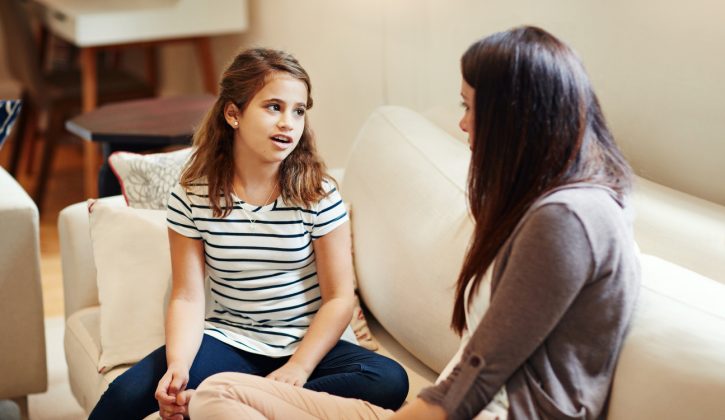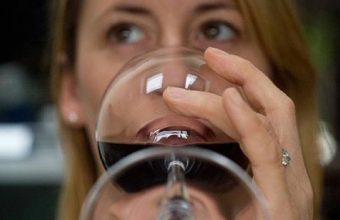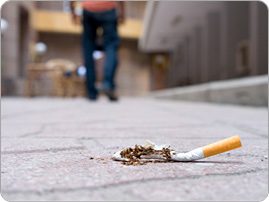Many grown-ups eased their pandemic tension by indulging or experimenting perhaps more than they used to. So figuring out how to talk to your kids about cannabis and alcohol is even more important as we celebrate our new post-pandemic world. We revisit this article first written a year before the pandemic started as the information is just as relevant as ever.
How to Talk to Your Kids About Cannabis & Alcohol
“Why did you leave Daddy’s car at the train station all night?”
The question rang out from the backseat of my car, inquisitive and somewhat suspicious. We had just gone out to retrieve my husband’s vehicle, smartly abandoned in the Go Train parking lot after a celebratory night out with friends, and my six-year-old had questions. This was, after all, an unusual errand to be dragged along on a Sunday morning. Was it broken, he wanted to know, and if not, why didn’t we drive it home last night?
“Well,” I explained, choosing my words carefully. “You know how Grandma babysat and we went out?” He said yes, so I continued. “Daddy drove us to the Go Train but when we were with our friends, we drank some wine and other things with alcohol in it. We both had more than one drink so we decided it wouldn’t be safe to drive the car, so we took a cab home from the train station.”
My seven-year-old daughter chimed in. “Because alcohol makes people act SILLY, right?”
“Right,” I said. “Especially if you have a lot of it. You can act silly but also make bad decisions, and your brain works differently after alcohol so you aren’t able to drive safely. You basically shouldn’t do anything dangerous or important after you drink.”
The kids were satisfied with this answer and moved on to other things, like arguing about who had the more powerful Pokemon card. This wasn’t the first time we’d talked about alcohol and it definitely wouldn’t be the last – not by a long shot. Our kids have always seen alcohol consumed in moderation, from my husband’s craft beer to occasional afternoon drinks at the cottage. They’ve never seen anyone drunk and never had a drop of alcohol themselves, and I’ve always made a point to be honest about what it is and why people need to be cautious with it.
Truthfully, though, I wasn’t sure if I was giving them too much information, the wrong information or not enough – but like all moms, I’m trying my best.
I didn’t expect to discuss cannabis so early
Now that it’s legal for recreational use, I was less confident in how to approach it. “It’s something that used to be illegal because it’s a drug, but it’s not a HARD drug so honestly, a lot of us did it anyway and people lobbied for it to become legal and now it is, but it’s just for adults and you have to be careful, just like with alcohol, maybe extra careful because it’s harder to monitor your intake and the effect…”
My rambling inner cannabis monologue was not going to cut it, and my alcohol talk could probably use some improvement, I realized. Fortunately, there are people with far more expertise on these subjects than me – so we talked to them.
“Young children are very inquisitive and having honest responses to their questions is important,” explains Cynthia Lindsay, Public Health Nurse with Halton Region. “They will naturally let you know when they have received enough information to satisfy their curiosity. Often a factual response is all they need at this young age. If they keep asking, then continue the conversation. If they move on, you have your answer that they are satisfied with the information they received.”
How else do we teach our kids about safety around alcohol and cannabis?
By modelling appropriate behaviours, Lindsay asserts. “While your kids are young, it’s important to role model responsible drinking and cannabis use. Young children are watching your behaviours. They may get the wrong idea if everyone is laughing when Daddy lets their young child take a swig of beer. Remember those days? This does not send the right message.”
I asked how parents should approach this subject at different ages, and Lindsay had some great advice. She suggests using positive and open communication as the foundation for any family discussion, which can happen casually around the dinner table (ideally with no phones or tech present). “Answer your kids’ questions at the appropriate developmental stages. A six-year-old may not have a lot of questions about alcohol or non-medicinal cannabis, however, will be watching you and how you are behaving when drinking alcohol or consuming cannabis.”
“As with the majority of parenting, it changes just when you think you’ve mastered it,” Cynthia adds with a laugh. “You will be providing more guidance and support the older they get.”
“Teens will be making their own choices and decisions about lots of things. This is a necessary part of their development into young adults. We as parents cannot be there to make the decisions for them. This is normal, and it’s normal to feel anxious as a parent when they are put into more challenging situations.” (Parenting-based anxiety? Check!)
Getting ahead of the game is key
Lindsay further explains that you want to talk to your kids about alcohol and cannabis before they are exposed to it. “Initiating a conversation with your preteens and early teens is very important, even if they haven’t asked any questions recently. Use everyday events to start a conversation, perhaps initiating it when you see something in a movie you are watching together, or a news event about a celebrity mishap, or a friend’s child’s experiences.”
“The older they get, such as at 16, you need to deal more with the fact that your teen will be exposed to alcohol and cannabis at most parties. Your teens now have new friends who you don’t know that well, and you know their parents even less. You need to worry about teens not knowing how to deal with difficult situations such as the ability to say ‘no’ while still saving face. Teens want to fit in and often try new things due to peer pressure. Be sure they also understand the zero alcohol or cannabis limit when they are driving.”
Honesty, Information, and a Strong Foundation
As with all things parenting, talking to kids about high-risk behaviours is a constant learning curve. When it comes down to the very basic elements, though, it’s all about honesty, information and what Cynthia calls “building developmental assets” – essentially, giving kids a strong foundation from which they can make good choices and avoid high-risk behaviour. You can read more about developmental assets here (this is a really great read for all parents).
If you have questions about alcohol, cannabis or other high-risk behaviours, your local Public Health office can be a fantastic support system. Cynthia shared some great resources with us that are worth reading and sharing (links below).
They say it takes a village, so go around and spread the word around yours.
Educational Resources for Parents for How to Talk to Your Kids About Cannabis & Alcohol:
- Developmental Relationship Framework
- The Truth About Teens and Alcohol
- The Blunt Truth
- Cannabis Talk Kit for Parents
- All You Need to Know About Vaping
- Findings of the Ontario Student Drug Use Survey
Tagged under: kids,alcohol,how to talk to kids,cannabis,alcohol and drug use
Category: moms-and-cannabis,safety,family-life






